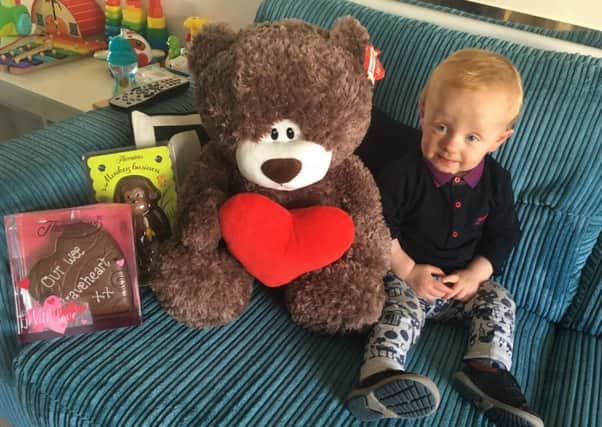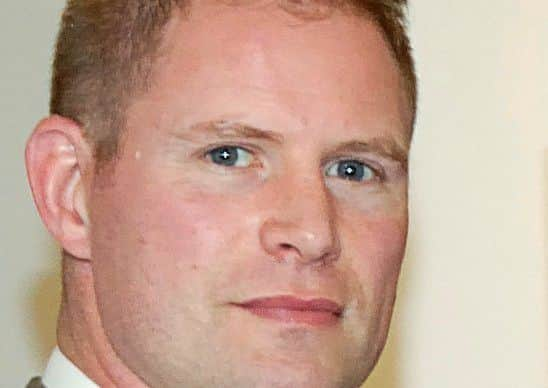James Cant: We're saving more babies with heart defects thanks to pioneering work


It’s particularly moving to spend time with families whose children have been affected by congenital heart disease. Their bravery and determination is both inspiring and humbling.
Congenital heart disease is an abnormality of the heart that develops in the womb and there is a range of different conditions.
Advertisement
Hide AdAdvertisement
Hide AdSometimes a congenital heart condition is picked up during pregnancy, but often it’s not discovered until after birth. Some children don’t need any treatment, while others may need medication, heart surgery or other procedures.


What should be the happiest time of their lives can become frightening and upsetting for new parents. Imagine you’ve just met your long-awaited baby, only to discover that they have a potentially life-threatening heart condition that could require major surgery.
It’s not surprising that parents tell us they can feel overwhelmed by a range of emotions, including anger, disappointment, fear and guilt.
Each year, 300 babies in Scotland are diagnosed with a heart defect. Behind every statistic is a child and a family facing the unknown. Last summer, this was the situation the Taylor family found themselves in. When their son Cohen was born, he seemed perfectly healthy. But at his eight week check-up, their GP detected a heart murmur.
Doctors at the Sick Kids Hospital in Edinburgh found Cohen had coarctation of the aorta (narrowing of the aorta which stops the blood from circulating normally in the lower half of the body) and two holes in his heart.


Cohen had open heart surgery a week later in Glasgow to remove the narrowed part of the aorta and repair the holes in his heart. It was a hugely worrying time for his parents, but he recovered well and should grow up to lead a normal adult life.
The ground-breaking surgery that helps children like Cohen has only come about in recent times. In the 1950s, around eight out of ten babies born with a complex congenital heart condition died before their first birthday.
Today, thanks to advances in treatment and care, eight out of ten babies with congenital heart disease grow up to be adults. That’s a remarkable turnaround.
Advertisement
Hide AdAdvertisement
Hide AdThat’s why the BHF is committed to funding more research into congenital heart disease. We’re currently investing over £11 million in 23 research projects across the UK.
In the 1970s, the pioneering heart surgeon, BHF Professor Sir Magdi Yacoub, developed a revolutionary surgical technique to correct a defect where a baby’s major blood vessels are attached to the wrong chambers of the heart – his ‘switch’ technique is still used by surgeons worldwide.
BHF Professor Robert Anderson helped to improve treatment by carefully mapping the anatomy of heart defects. BHF-funded research transformed the replacement of faulty heart valves in children. Instead of traumatic open heart surgery, a much quicker and less stressful technique was developed.
This track record gives us confidence that BHF-funded research can continue to drive forward new discoveries in congenital heart disease. We have scientists investigating how the heart develops in the embryo, others working to identify genes that could cause some heart defects, and studying stem cell development to understand how heart cells form. Computer simulations are being used to help plan personalised treatments for children, and new ways to protect their heart muscle during open heart surgery are being developed. We’re also looking at what we need to do for adults who have grown up with congenital heart disease.
This is a fairly new and growing area of research – what future challenges might child heart patients face as adults, how can we predict them and what support will they need? After his treatment, Cohen’s dad Martin told us, “we were delighted with the support we got from the BHF and we’d like to do whatever we can to raise awareness of the need for more research”.
While there are still families like the Taylors facing this situation, and while we have the support of donors across Scotland who fund our work, we’ll keep fighting to improve the lives of children born with heart disease. Find out more at www.bhf.org.uk/congenital
James Cant, director, BHF Scotland.